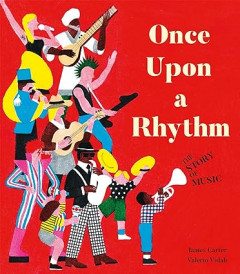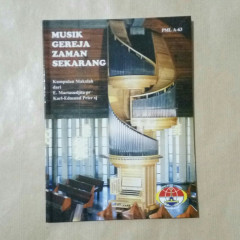Filter by
Found 226 from your keywords: subject="Music"

Advanced Snare Drum Studies
- Edition
- -
- ISBN/ISSN
- 9781934638149
- Collation
- -
- Series Title
- -
- Call Number
- -
- Edition
- -
- ISBN/ISSN
- 9781934638149
- Collation
- -
- Series Title
- -
- Call Number
- -

Conducting technique for Beginners and Professionals: Third Edition
- Edition
- -
- ISBN/ISSN
- 9780193868540
- Collation
- 140 pages, softcover
- Series Title
- -
- Call Number
- 784.2 ELH c
- Edition
- -
- ISBN/ISSN
- 9780193868540
- Collation
- 140 pages, softcover
- Series Title
- -
- Call Number
- 784.2 ELH c

Once Upon a Rhytm: The Story of Music
It hums and it thrums through day and night the magical, mystical rhythm of life! Follow the story of music back to the very beginning. Did it start with a stomp or a clap? This playful poem is an ode to the colourful world of music and rhythm.
- Edition
- -
- ISBN/ISSN
- 9781848578449
- Collation
- 32 pages, hardback
- Series Title
- -
- Call Number
- CAR o

Singin' in the Rain DVD
- Edition
- -
- ISBN/ISSN
- -
- Collation
- -
- Series Title
- -
- Call Number
- 791.4372 STA s
- Edition
- -
- ISBN/ISSN
- -
- Collation
- -
- Series Title
- -
- Call Number
- 791.4372 STA s

Buku Lengkap Belajar Alat Musik (Gitar, Piano, Keyboard, Drum, dan Biola)
- Edition
- -
- ISBN/ISSN
- 9786023917860
- Collation
- -
- Series Title
- -
- Call Number
- 780.7 AND b
- Edition
- -
- ISBN/ISSN
- 9786023917860
- Collation
- -
- Series Title
- -
- Call Number
- 780.7 AND b

100 Lagu Anak Terpopuler Sepanjang Masa
- Edition
- -
- ISBN/ISSN
- 9790901394636
- Collation
- -
- Series Title
- -
- Call Number
- 780 PAM 1
- Edition
- -
- ISBN/ISSN
- 9790901394636
- Collation
- -
- Series Title
- -
- Call Number
- 780 PAM 1

Ketilang Kumpulan Lagu Kanak-Kanak
- Edition
- -
- ISBN/ISSN
- -
- Collation
- -
- Series Title
- -
- Call Number
- 780 SUD k
- Edition
- -
- ISBN/ISSN
- -
- Collation
- -
- Series Title
- -
- Call Number
- 780 SUD k

Musik Gereja Zaman Sekarang
- Edition
- -
- ISBN/ISSN
- -
- Collation
- -
- Series Title
- -
- Call Number
- 780 MAR m
- Edition
- -
- ISBN/ISSN
- -
- Collation
- -
- Series Title
- -
- Call Number
- 780 MAR m

Koleksi Lengkap Lagu Anak-Anak Indonesia-Dunia
- Edition
- -
- ISBN/ISSN
- 9790801869333
- Collation
- -
- Series Title
- -
- Call Number
- 782 LAI k
- Edition
- -
- ISBN/ISSN
- 9790801869333
- Collation
- -
- Series Title
- -
- Call Number
- 782 LAI k

1001 Jurus Mudah Menyanyi
- Edition
- -
- ISBN/ISSN
- 9789797525828
- Collation
- -
- Series Title
- -
- Call Number
- 780.78 POE 1
- Edition
- -
- ISBN/ISSN
- 9789797525828
- Collation
- -
- Series Title
- -
- Call Number
- 780.78 POE 1
 Computer Science, Information & General Works
Computer Science, Information & General Works  Philosophy & Psychology
Philosophy & Psychology  Religion
Religion  Social Sciences
Social Sciences  Language
Language  Pure Science
Pure Science  Applied Sciences
Applied Sciences  Art & Recreation
Art & Recreation  Literature
Literature  History & Geography
History & Geography